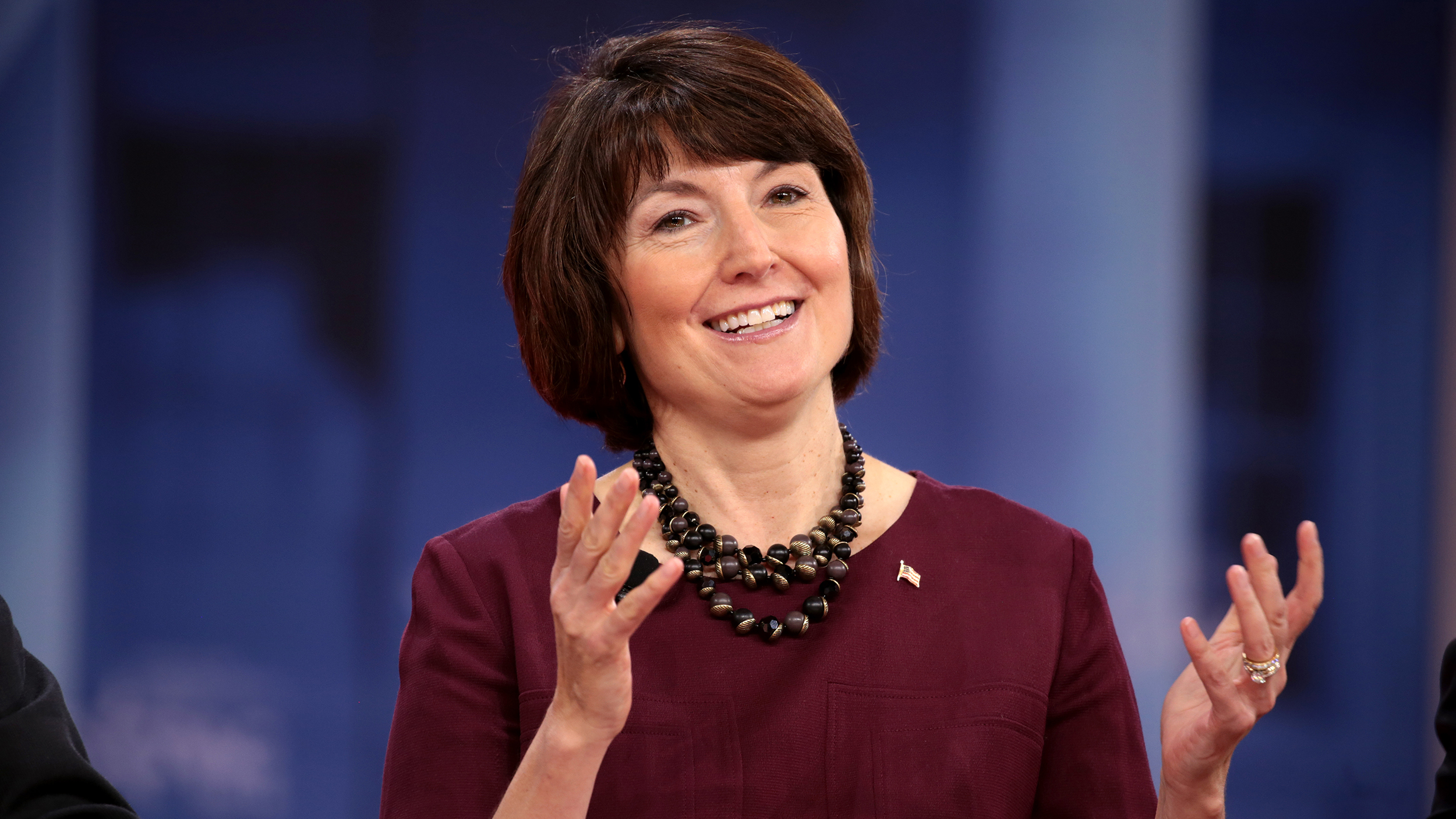Rep. Cathy McMorris Rodgers Warns FCC to Stay in Regulatory Lane
Signals GOP takeover of House would mean aggressive oversight of ‘unelected bureaucrats’

The smarter way to stay on top of the multichannel video marketplace. Sign up below.
You are now subscribed
Your newsletter sign-up was successful
Perhaps anticipating a potential change in House leadership next year after midterm elections, the possible incumbent future chair of the powerful House Energy & Commerce Committee signaled the FCC that it should stay within its regulatory lane, likely including any attempt to impose new net neutrality regulations, if the agency gets a third Democrat seated during the lame-duck session.
In a letter to Federal Communications Commission chair Jessica Rosenworcel, Rep. Cathy McMorris Rodgers (R-Wash.), ranking member of the committee, sent this warning: “As the committee of jurisdiction overseeing the FCC, I assure you the committee and its members will exercise our robust investigative and legislative powers to not only forcefully reassert our Article I responsibilities, but to ensure the FCC under Democrat leadership does not continue to exceed Congressional authorizations.”
The Energy & Commerce Committee has primary jurisdiction over communications issues.
Rodgers did not specify which congressional authorizations she felt the FCC had exceeded, though an appeals court did recently vacate an FCC decision to toughen broadcast foreign programming identification requirements, saying the FCC had exceeded its authority.
But Rodgers made it clear she saw it as a pattern of bad regulatory behavior. The FCC's authority to regulate net neutrality has been one of the things Republicans, including Rodgers, have said the FCC under Democratic leadership has gotten wrong.
“[I]n recent years the FCC has taken it upon itself to misinterpret its authority to initiate rulemakings with ‘economic and political significance’ that fit the chair’s political leanings," she said.
Also: Supreme Court Deals Blow to Net Neutrality Rule Fans
The smarter way to stay on top of the multichannel video marketplace. Sign up below.
Rodgers pointed to a recent Supreme Court decision, West Virginia vs. EPA, that she suggested the FCC should follow. In that decision, the court rejected an EPA interpretation of the agency's congressional authority.
Traditionally, applying the so-called Chevron doctrine, the courts have given much deference to agency expertise on how they interpret congressional direction and intent.
But the Biden administration’s loss in the Supreme Court ruling involving the Environmental Protection Agency’s ability to regulate power plants undercut the doctrine and was seen as a potential victory for ISP arguments that the FCC was outside its regulatory lane when it reclassified internet access as a Title II common-carrier service subject to open access and other requirements and imposed net neutrality rules.
Rodgers is clearly in that camp saying the court decision made clear that "such reliance on the administrative state undermines our system of government. Our founders provided Congress with legislative authority to ensure lawmaking is done by elected officials, not unaccountable bureaucrats," the latter which, she said, will no longer be tolerated.
Also: More Net Neutrality Billboards Go Up
“As the court explained, ‘[p]recedent teaches that there are ‘extraordinary cases’ in which the ‘history and breadth of the authority that [the agency] has asserted,’ and the ‘economic and political significance’ of that assertion, provide a ‘reason to hesitate before concluding that Congress’ meant to confer such authority,” she told Rosenworcel.
Ironically, Chevron was central to the Supreme Court’s 2005 decision in NCTA v. Brand X Internet Services, which upheld the FCC’s authority to classify broadband as an information service not subject to mandatory access common-carrier regulations. That finding has left different FCCs to define and redefine internet access and has prompted calls for Congress to step in and do its duty to clarify the statute.
Congress has yet to do so. Both sides of the aisle have said they want such clarity, but can't agree on what they would be clarifying given that Democrats generally want the authority to rest under the Title II telecommunications service common-carrier regime and Republicans under the Title I information-services regime.
Rodgers had some homework for Rosenworcel on the issue. She asked her for a list of all pending and anticipated rulemakings and what congressional authority the FCC would be asserting for each, as well as any declaratory rulings that would be issued by an FCC office or bureau on delegated authority — which, unlike rulemakings, don't require a vote by the commissioners.
Rosenworcel was quick to respond and provide the requested lists, which did not include any upcoming vote on network neutrality rules.
"I welcome the opportunity to respond and can assure you that the Federal Communications Commission takes seriously the responsibilities entrusted to it by Congress under the law," she said in a letter to Rodgers released Oct. 18, "including the efforts identified in your letter 'to expand connectivity to all Americans, regulate broadcast stations and multichannel video programming distributors (MVPDs) in the media marketplace, limit the transmission of illegal robocalls, preserve the capability for reliable 911 and emergency alerting services, and remove untrusted communications equipment and services from U.S. communications networks.'" ▪️
Contributing editor John Eggerton has been an editor and/or writer on media regulation, legislation and policy for over four decades, including covering the FCC, FTC, Congress, the major media trade associations, and the federal courts. In addition to Multichannel News and Broadcasting + Cable, his work has appeared in Radio World, TV Technology, TV Fax, This Week in Consumer Electronics, Variety and the Encyclopedia Britannica.

